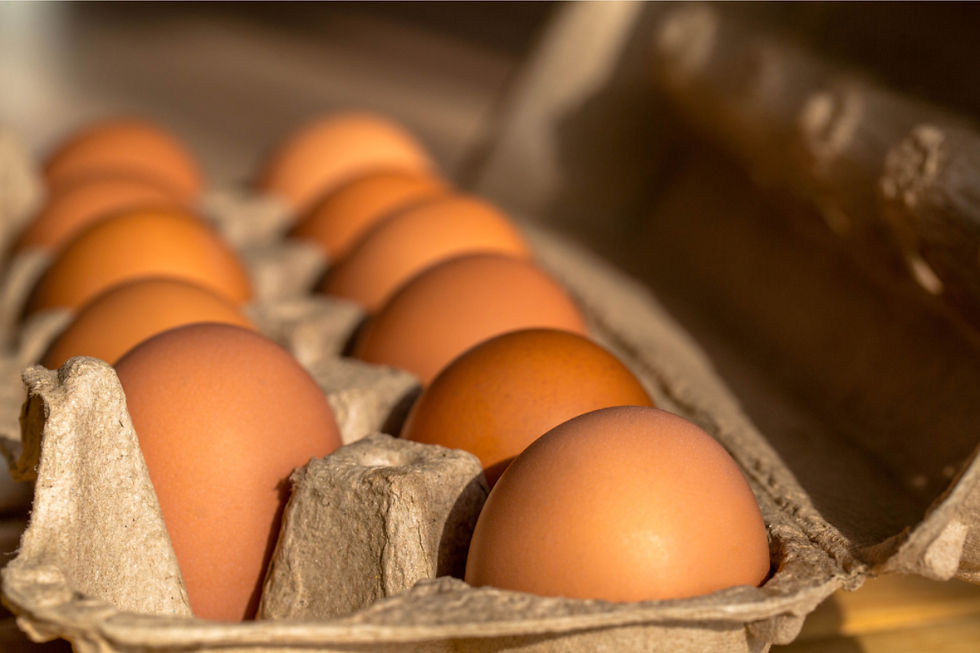New Zealand's Organic Food Sector Shows Strong Growth, Presenting Opportunities and Challenges for Asian Importers
- Yvonne Chang
- Jul 11, 2025
- 3 min read
Updated: Jul 14, 2025
As the global demand for healthy and sustainable food continues to rise, New Zealand's organic sector is experiencing unprecedented growth. The latest data from Organics Aotearoa New Zealand (OANZ) shows that the country's organic food market has surpassed the NZ$1 billion mark, making it a source of quality goods that Asian importers cannot ignore. However, behind this booming development, supply chain pressures and policy uncertainties are also adding variables to the market.

Tapping into a Booming Global Market
According to the 2025 Organic Sector Market Report released by OANZ, the total value of New Zealand's organic sector has reached NZ$1.18 billion, with exports accounting for over 60%. The report forecasts that the global market for organic food and beverages, valued at approximately US$250–$280 billion in 2024, will more than double to exceed US$650 billion by 2033. Over the next decade, the Asia-Pacific region is set to become the fastest-growing market for organic consumption globally.
Three Star Categories Lead Exports
New Zealand's organic export success is primarily concentrated in a few standout categories:
Fruit and Vegetables: The number one export category, with sales of NZ$244.7 million (up 71% since 2020), accounting for 40.3% of total organic exports.
Organic Dairy: A powerhouse category and the number two export category, with sales of NZ$214.5 million.
Organic Wine: Ranked third, valued at NZ$73.8 million (up 13.5% since 2020), making up 12.2% of organic exports.

Established Trade with Asia and the World
New Zealand has already established a firm foothold in major global organic food markets. In 2024, its four largest export destinations were the United States (28.5%), the European Union (18.4%), and Australia (18.2%). Notably, China was the fourth-largest market, accounting for 10.4% of New Zealand's total organic exports.
Relevant Legislation and Certification
New Zealand is establishing a new foundation for its organic industry through the Organic Products and Production Act 2023. Although the Act has been passed, the industry's current focus is on finalizing the detailed National Organic Standard, which is key to paving the way for formal government-to-government equivalency agreements in the future. In the meantime, Asian importers can select suppliers certified by New Zealand's organic certification bodies, such as BioGro and AsureQuality, and should track the legislative progress of New Zealand's National Organic Standard.
Key Challenges for Importers to Note
While the opportunities are apparent, the report also highlights two major challenges that must be noted:
1. New Zealand's Gene Technology Policy
The report describes the government's proposed Gene Technology Bill as an "existential threat" to New Zealand's trusted "GE-free" status. For importers, this is a significant concern. The "clean, GE-free" brand promise is a core reason for the premium price of New Zealand's products. Any change to this status could damage the trust of both importers and consumers.
2. Supply Chain Concerns Emerge
Behind the strong export growth, pressures have emerged at the base of the supply chain. The report notes that "the number of operations converting to organic production has declined by 78% compared to 2020." A decrease in new producers, coupled with rising costs for existing farmers, could lead to future supply chain instability. Cost pressures at the production end and the complexity of certification may deter new suppliers from entering the market.
Conclusion
Despite the challenges, New Zealand's organic sector remains a quality option for Asia's high-end food market, thanks to its strict quality control and ecological advantages. Importers who can plan ahead, secure a stable source of supply, and ensure their products meet the certification standards of their target markets will be able to seize this fast-growing market opportunity.





Comments